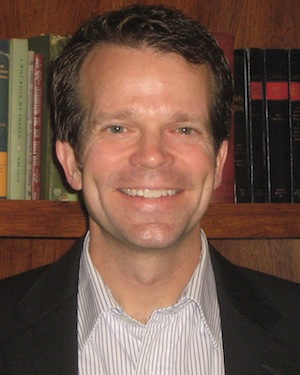Ethan, our 16-year-old son, is autistic. Like lots of autistic people, Ethan has highly focused interests, some of which include jumbo-sized vegetable hybrids, Christmas, and his birthday. Ethan also is prone to physical and verbal outbursts. Thanks to a powerful drug cocktail and the coping strategies his teachers have taught him, Ethan is learning to control himself. Without the meds and his teachers, he would have been institutionalized a long time ago.
We don’t know what the future holds for Ethan, but some of the uncertainty was removed when President Obama signed the Affordable Care Act in 2010. Ethan will never lack for health insurance, regardless of whether he can hold down a full-time job. As I tweeted the day the Supreme Court upheld the ACA, “Someday my autistic son will have to buy health insurance, and someone will have to sell it to him. That’s fair.”
It wasn’t fair that insurance companies could cancel people’s coverage at a moment’s notice, or deny coverage based on preexisting conditions. Obamacare ended those abuses.
At the same time, the ACA says, “Don’t plan on foisting the cost of your appendectomy onto the taxpayer. You have to insure yourself. If you’re poor, we’ll help you. But you need to take some responsibility for your health.” That’s also fair. There’s a small-C conservatism in the individual mandate that its detractors have overlooked and its supporters have been reluctant to trumpet. But it’s there.
___________________________________________
As I tweeted the day the Supreme Court upheld the ACA, “Someday my autistic son will have to buy health insurance, and someone will have to sell it to him. That’s fair.”
___________________________________________
Partly out of gratitude to President Obama and partly in the determination to cement health care reform for my son, I went to work for the President’s re-election campaign in 2012. It all started when I showed up at the Obama headquarters in Richmond, VA, and volunteered to lead a voter registration drive. It poured rain that weekend. We registered one voter. After this inauspicious start, a campaign staffer named Jesse asked me, for some reason, to be a Neighborhood Team Leader—a volunteer coordinator. “Will it be a lot of work?” I asked Jesse over a beer at a bar near headquarters (a beer that you bought if you are a Democratic voter who ever gave into one of those email pleas for a five dollar donation!) Jesse didn’t exactly lie. He just decided that I didn’t need to know the full extent of what I was committing to. Campaign staffers are like that.
It was indeed a lot of hard work. We walked miles in Richmond’s brutal heat in search of voters to register. We got pretty good at it. We figured out which apartment complexes we could access and which ones we couldn’t – and which locations had folks predisposed to voting Democratic. (Locations include: discount store parking lots and vegetarian festivals.)
It was also a lot of fun. I got to warm up the crowd when President Obama kicked off his campaign in Richmond in May. Speaking to 7,000 people—now that’s intoxicating—like, mega-church preacher intoxicating! The family and I attended a smaller rally with the President in June. It poured rain. We grooved to Al Green. Ethan and his younger brother Andrew got to hear the President of the United States make a speech from just 50 feet away—a great civics lesson.
Presbyterians could learn a lot from political campaigns. Many of our churches are cut off from the neighborhoods in which they stand. We could overcome this alienation by knocking on doors. I’m not talking about distributing tracts with pictures of the lake of fire. I’m not even talking about inviting people to church. What if we just went door-to-door and asked, “Is there anything you need us to pray for?” Or, “We have empty space in our facility. What do you think we should do with it?” If we did this every weekend for a sustained period of time, we might make new friends and find “new ways to touch the lives of all,” to quote the Iona Community prayer book.
___________________________________________
As I reflect on my experience, the story in Mark’s gospel of Jesus healing the paralyzed man comes to mind. The man’s friends, unable to carry him on his litter through the crowd, dug a hole in the roof and lowered him down to Jesus. They did an extraordinary thing to help their friend gain access to healing.
___________________________________________
There’s more to learn. The Obama campaign’s “snowflake model” delegated the work to volunteers like me. Jesse taught me how to use the campaign’s data base, gave me weekly goals, answered my questions, and got out of my way. By Labor Day we were doing practically everything in our neighborhood, running phone banks, recruiting volunteers, setting up bases for canvassing, and entering data. Both control freak pastors and congregations who outsource ministry to paid clergy could use a new model of ministry where the workload is shared. Ministers need to give lay people the tools they need to start a Bible study, or a ministry with at-risk youth, or whatever, and trust them enough to get out of their way.
The most disappointing aspect of the campaign was how many people we couldn’t get on board. I’m not talking about Mitt Romney supporters. I’m talking about people who couldn’t vote. The state of Virginia disenfranchises convicted felons, and the procedure to restore voting rights is long and onerous. This policy, in tandem with our draconian drug laws, is a continuation of Jim Crow by other means: African Americans are disproportionately arrested and convicted for drug offenses and struck from voter rolls. In our neighborhood, where stately homes sit cheek to jowl with apartment complexes mostly populated by low income African Americans, there was no shortage of opportunities to meet ex-cons. I would ask, “Would you like to update your voter registration info?” Sometimes I’d be greeted with gallows humor. “Naw, man! I’m a THREE TIME FELON!” But other times I found myself looking up at a young man with slumped shoulders and downcast eyes who’d mumble “No.” You knew what that meant.
There are all these people in my community walking around with a civic scarlet letter. Even after they have paid their debt to society, they aren’t full citizens like the rest of us. I got into this campaign to protect my son’s access to health care and discovered that plenty of my neighbors are wrongly denied access to the ballot box.
Despite that challenge we won the election, and universal health insurance is here to stay. It’s estimated that an additional six million people will be insured by the end of March. And for those of you who already have insurance through your employer, you have options now. If you’re only working for the insurance, you can take that job and shove it, buy a policy at healthcare.gov (it works now), and go back to school, or start a business. You’re freer than you used to be.
___________________________________________
I got into this campaign to protect my son’s access to health care and discovered that plenty of my neighbors are wrongly denied access to the ballot box.
___________________________________________
As I reflect on my experience, the story in Mark’s gospel of Jesus healing the paralyzed man comes to mind. The man’s friends, unable to carry him on his litter through the crowd, dug a hole in the roof and lowered him down to Jesus. They did an extraordinary thing to help their friend gain access to healing. That’s what this election was about for me: access to health care and access to the ballot box. My team went to some crazy lengths to achieve that. There’s much work left to do.
That said, I’m a bit reluctant to proof-text this experience. The ACA is a prudent piece of legislation that has given me some peace of mind and will improve the lives of many. It did not come down from Mount Sinai engraved on tablets of stone. When the ACA was before the Supreme Court, I remember hearing a minister leading a prayer vigil against the ACA on the steps of the High Court. I understand the arguments that Obamacare is bad policy or even unconstitutional, but is it a sin? Is it a heresy?
We don’t need a Religious Left as a counterweight to the Religious Right in this country. What we need is a new appreciation for Augustine’s sense of the secular, as the late British historian Robert Markus brilliantly outlined in his book Saeculum. Augustine divides the world up into citizens of the earthly city, who are motivated by pride and fear, and citizens of the heavenly city who are motivated by love of God and neighbor. Despite drawing such a stark contrast, Augustine acknowledges that there is considerable overlap between the values of the two cities. That overlap is the realm of the secular, neither sacred nor profane, and that’s where a law like the ACA falls.
With rare exceptions, when we demonize or deify pieces of legislation, we make what in theological terms is called a category error. In political terms, we make it impossible to achieve the compromises that the Framers intended when they gave us a political system with checks and balances. After all, there’s no compromise with heretics. In general, Christians should not be in politics in order to defend or advance the faith, but rather to find common ground with our fellow citizens and take sensible measures to further the common good. It’s in that real but limited sense that I as a Christian find value in grassroots politics and good public policy.
AUTHOR BIO: Marvin Lindsay is a Ph.D. student in the History of Christianity at Union Presbyterian Seminary in Richmond, Virginia, and the covenant pastor of New Covenant Presbyterian Church in North Chesterfield, Virginia. Marvin is the happily married father of two redheaded teenagers.
Check out the rest of this week’s articles here.
Read more articles in this series.












